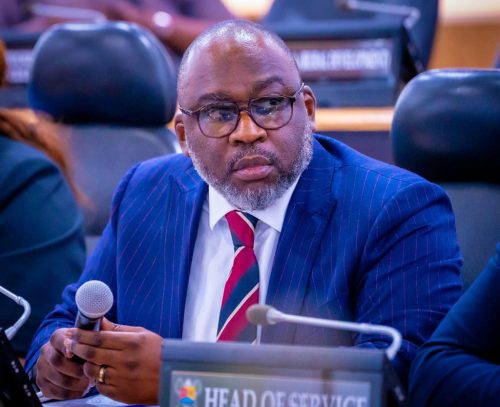The Lagos State Government is embarking on a comprehensive series of stakeholder consultations to shape its 2026 budget. This initiative underscores the government’s commitment to participatory governance and ensures that the budget reflects the needs and priorities of the citizens. The consultative fora, scheduled between September 9th and 16th, will span across the five divisions of Lagos State: Ikeja, Lagos Island, Ikorodu, Epe, and Badagry. This inclusive approach seeks to gather input from a diverse range of stakeholders, including community development committees and associations, traditional rulers, professional and religious bodies, civil society groups, non-governmental organizations, trade organizations, youth representatives, people living with disabilities, and the general public. Recognizing the importance of digital inclusion, the government is also providing avenues for virtual participation, allowing individuals unable to attend the physical sessions to contribute their perspectives. The overall goal is to create a budget that truly reflects the needs and aspirations of the Lagosian populace, paving the way for a 21st-century economy.
The consultative fora are designed to be interactive platforms where stakeholders can engage directly with government officials, voice their concerns, and offer suggestions for the 2026 budget. These sessions will facilitate a two-way communication flow, enabling the government to gather valuable insights and feedback from the ground up. By directly engaging with community members, traditional leaders, professional bodies, and various other stakeholder groups, the government aims to gain a deeper understanding of the unique challenges and opportunities within each division of the state. This nuanced understanding will inform the allocation of resources and the prioritization of projects, ensuring that the budget effectively addresses the specific needs of each community. The open dialogue fostered during these fora will contribute to a more transparent and responsive budget process, ultimately benefiting all residents of Lagos State.
The Lagos State Government emphasizes the importance of citizen participation in shaping the budget, recognizing that effective governance requires a collaborative approach. By actively involving stakeholders in the budgetary process, the government seeks to foster a sense of ownership and shared responsibility for the state’s development. The consultative fora provide a crucial platform for citizens to contribute their expertise, local knowledge, and lived experiences to the budget formulation process. This collaborative approach ensures that the budget reflects the collective vision of the people, promoting transparency and accountability in governance. The government believes that by harnessing the collective wisdom of its citizens, it can develop a budget that is both fiscally sound and socially impactful, contributing to the long-term prosperity of Lagos State.
The State Commissioner for Economic Planning and Budget, Ope George, emphasized the significance of these fora, describing them as the cornerstone of the state’s budgetary process. He stressed that citizen engagement is essential to ensure that the budget reflects the true needs and aspirations of the people, driving the state’s progress towards becoming a leading 21st-century economy. The commissioner urged all residents and stakeholders to actively participate in the consultative process, whether through physical attendance or virtual engagement. He reiterated the government’s commitment to inclusive governance, emphasizing the importance of incorporating diverse perspectives into the budget formulation process. By fostering an environment of open dialogue and collaboration, the Lagos State Government aims to create a budget that is both responsive to the needs of its citizens and strategically aligned with its long-term development goals.
The government’s commitment to participatory budgeting is a significant step towards strengthening democratic governance in Lagos State. By actively engaging citizens in the budget process, the government fosters transparency, accountability, and a sense of shared ownership. This approach ensures that public resources are allocated efficiently and effectively, addressing the priorities identified by the people themselves. The inclusive nature of the consultative fora ensures that all voices are heard, including those of marginalized communities, promoting equity and social justice. This participatory budgeting model not only enhances the quality of governance but also strengthens the relationship between the government and its citizens, creating a more cohesive and prosperous society.
In conclusion, the Lagos State Government’s initiative to hold these consultative fora demonstrates a genuine commitment to participatory governance and sets a positive precedent for other states to follow. By actively engaging its citizens in the budgeting process, the government fosters a sense of shared responsibility and ensures that public resources are allocated effectively to address the needs and priorities of the people. This collaborative approach enhances transparency, accountability and ultimately leads to more effective and equitable governance, contributing to the overall development and prosperity of Lagos State as it strives to become a leading 21st-century economy. The inclusion of both physical and virtual participation options further emphasizes the government’s commitment to accessibility and inclusivity, ensuring that all citizens, regardless of their location or circumstances, have the opportunity to contribute to the state’s future.


